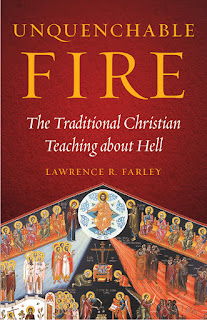One can often tell how far a heresy has spread and how much
it needs the antidote of refutation by the amount of ink it gets in blog
columns. I remember one young priest
writing in a church magazine a piece summarizing the Church’s traditional
teaching on gender and opining that the heresy of theological feminism had
become widespread. As if to prove his
point, the editor was immediately deluged with indignant letters threatening to
withdraw their support of the magazine and writing angry responses protesting
that the proffered traditional teaching and its author were misogynist and fit
only to be raked over live coals. When
the priest requested the opportunity to respond to the criticisms he was
refused, for the editor said that if he printed anything further from the
author the magazine would face financial ruination. Since the priest wrote the piece upon an explicit
request from the editor, the situation had its own share of irony.
My own
recent blogging experience offers the same kind of lesson. One can often gauge the strength of a heresy
by reading and counting the number of times a traditional statement of the
Church’s teaching draws indignant fire.
In my own blog, many if not most of my blog posts draw hardly a whisper
of response. Thus I wrote a piece
entitled, “All Kinds of Everything” about the Benedicite hymn and how everything in the world was a gift from
God. I wrote a piece entitled, “That’s
an Outrageous Thing to Accept”, about the legitimacy of mission work. I wrote a piece entitled, “A Lethal Legacy”
about the importance of church-going in the raising of children. I wrote pieces about the Feast of the
Entrance, Palm Sunday, Pascha. None of
these pieces drew a single comment.
Compare this with a piece on
Deaconesses, which pointed out that the “revived” office now being considered
bears faint resemblance to the ancient one.
This drew 16 comments. And
compare several pieces I wrote on Universalism, the teaching (popular today)
that everyone will be saved. The piece
“Christian Universalism” denouncing the heresy drew 26 comments. An examination of Dr. Ramelli’s book pushing
universalism drew 21. A piece discussing
the meaning of the Greek word “aionion”
(usually translated “eternal”) drew 34 comments. A piece entitled “The Morality of Gehenna”
drew 91 comments. It is clear that in
discussing the issue of the eternity of Gehenna I had struck a nerve. Universalism was not long-dead heresy,
surviving only among the “Unitarian-Universalist” churches. It was apparently a going concern even among
the Orthodox. It could be found promoted
among such books as Rob Bell’s Love Wins,
such blogs as “Eclectic Orthodoxy”, and such scholarly writings as those of
David Bentley Hart.
Some of the comments to my blog
pieces were very insightful and thoughtful.
(Some of course were simply rude, but one expects this in the
blogosphere.) To respond to them even
partially meant doing a lot of research, which I dutifully did before drafting
my responses. It soon occurred to me however
that the topic required much more research and writing than could fit into a
blog post or a blog’s comment section. It
would mean writing a book.
So, that is what I did. The book is now available from Ancient Faith Publishing and is entitled Unquenchable
Fire. It aims at being both popular
and thorough, and so contains chapters on Christ’s teaching on the subject of
hell in the Synoptic Gospels, views of divine judgment in the time of Christ,
the witness of St. John and that of the Acts of the Apostles, the apostolic
teaching in the Epistles and in the Apocalypse, an examination of the Fathers’
words on the subject, a look at Origen and his legacy (including a look at St. Gregory
of Nyssa and St. Gregory the Theologian), an examination of the Fifth Ecumenical
Council and its significance, a look at the Church’s cultural understanding of
the subject through its hymns and icons, an apologia
for the morality of the doctrine, and a chapter examining the teaching
sometimes called “Conditionalism”—i.e. the view that the damned will cease to exist
after the Last Judgment, a view comprehensively championed by Edward
Fudge. The work comes in at 240 pages,
and is available for $18.95. And yes,
this is a shameless plug.
But the point here is that I did
not write the book for the modest royalties it might garner or to alleviate
boredom, as if a parish priest has nothing to do but sit around and pound a
keyboard. I really do believe that
Universalism (or the doctrine of the apokatastasis—everything
sounds better in Greek) is heretical, and if taken completely seriously and
lived out represents another Gospel. The
book was written to provide people like my own flock with an antidote. No doubt people more scholarly than I could
do better. But until their works are
offered through Ancient Faith Publishing or some other English language
publisher, this will have to do for now.
Please allow me to commend it for your consideration.

No comments:
Post a Comment
Note: Only a member of this blog may post a comment.